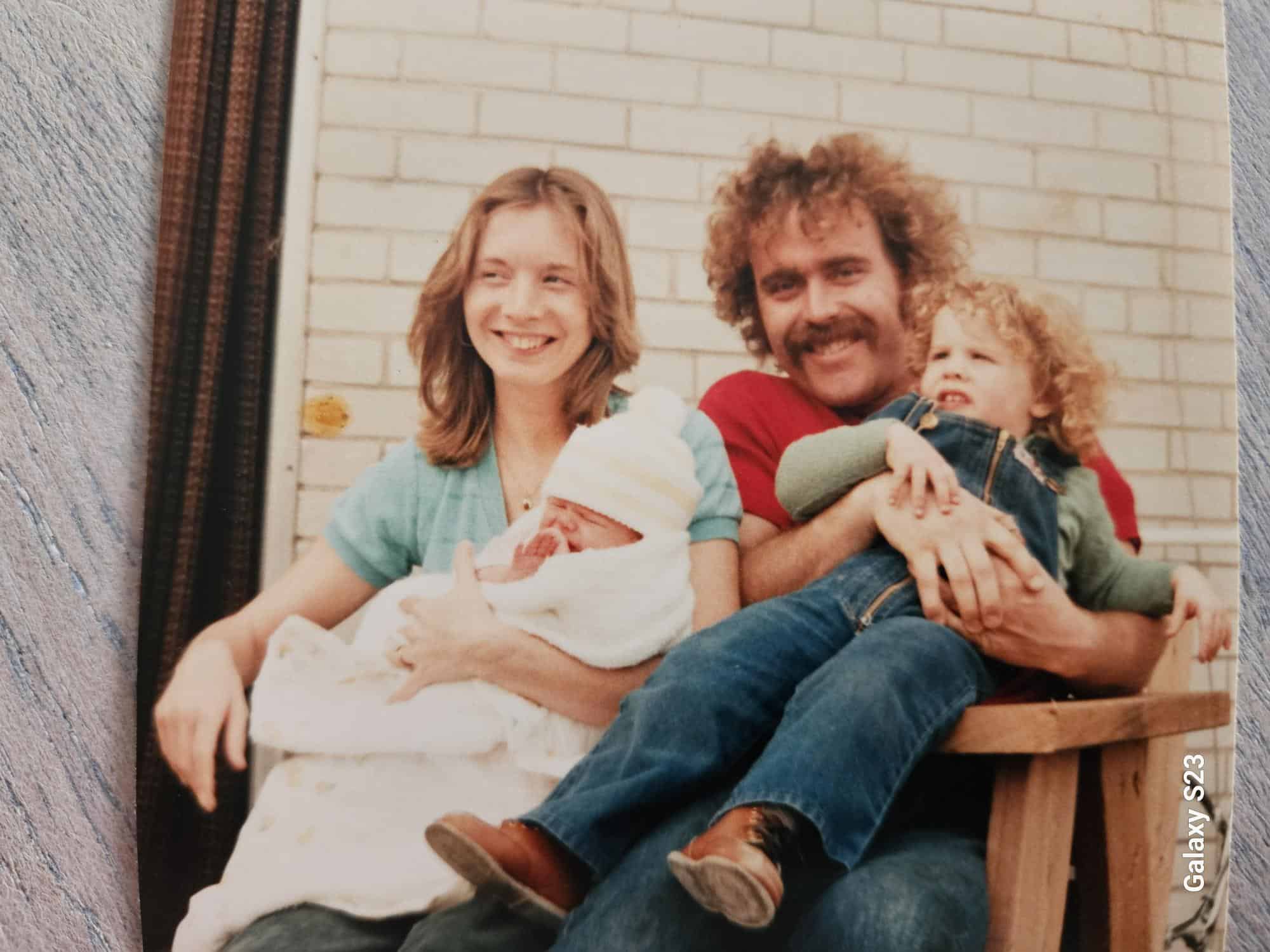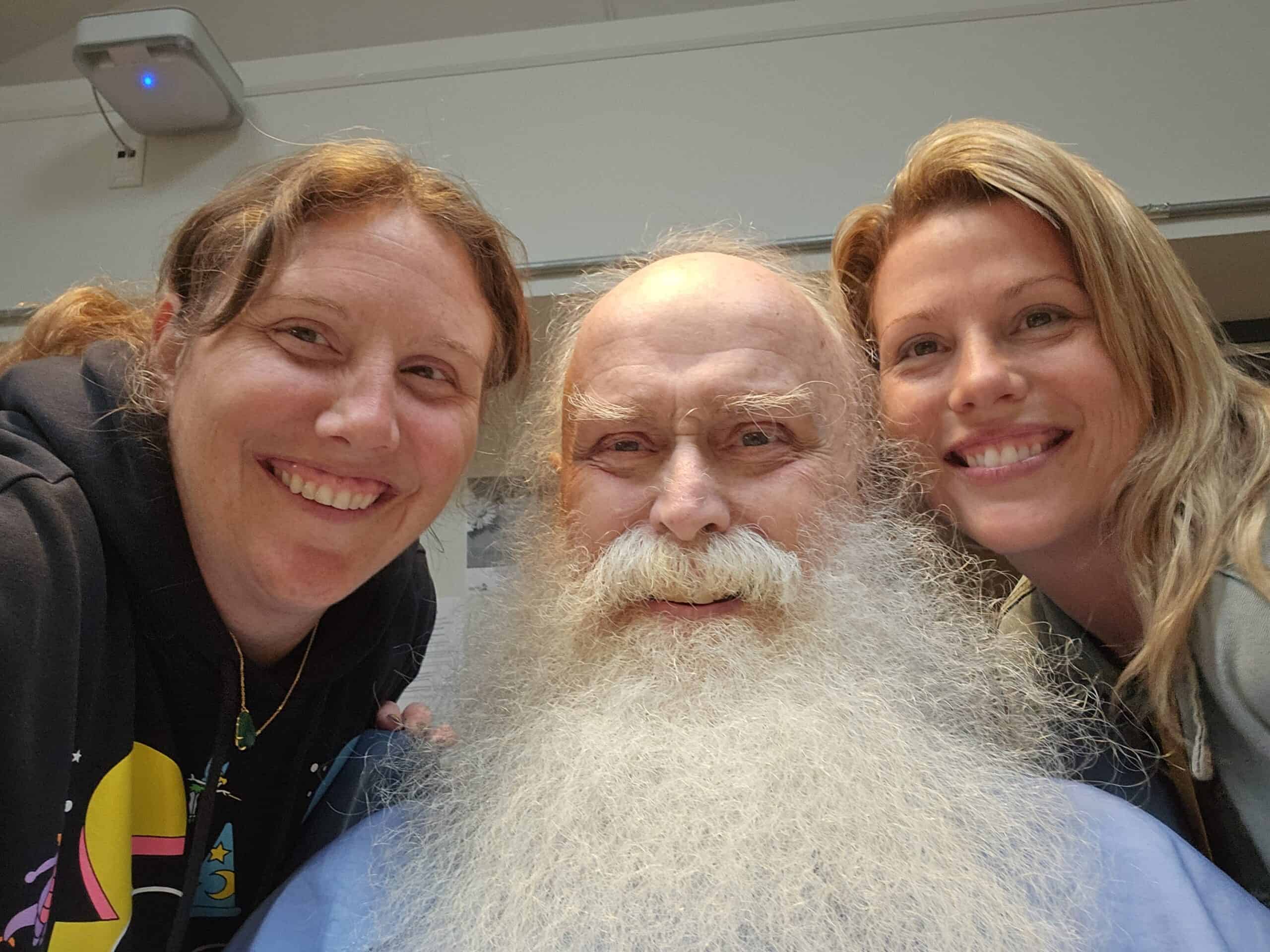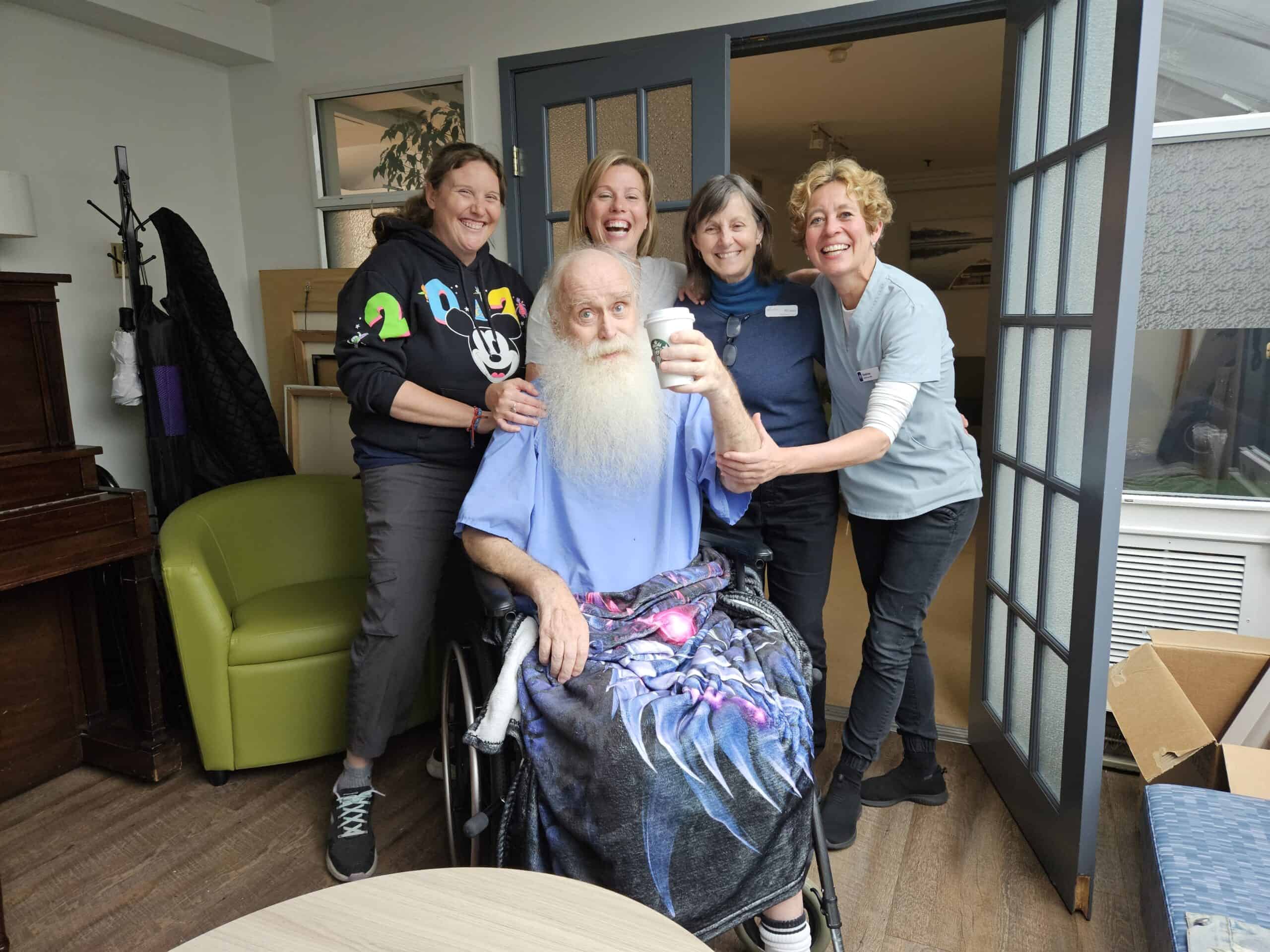October 12th is World Hospice and Palliative Care Day, a global observance that recognizes the importance of palliative services on patients and their families, and the compassionate care staff provide.
Leah Duval and Tanya Ellis don’t have many childhood memories of their father. They recall fragments, like his bright smile and building snowmen in the backyard.
And then one day, when they were three and five years old, Glenn Ellis disappeared completely.
As the girls grew up, they learned their father had schizophrenia, which they guessed played a large role in his disappearance. But as they entered adulthood the void of his absence generated more questions. Why exactly did he leave? Why didn’t he try to contact them? Did he start another family? Were they in his thoughts? Did he seek help for his disease, and were they susceptible to the same condition? Was he even still alive?
The family searched for years in the 1980s and never found him. The sisters had no choice but to move forward with their lives, though they never gave up hope that their father was still out there. Tanya started a dog grooming business. Both married, and the birth of Leah’s son six years ago reinvigorated her desire to find their dad. Leah spent months searching via modern DNA ancestry but came up with nothing.
Then, on May 14th 2024, nearly 40 years after their father vanished from their hometown in Ontario, Tanya received an unexpected phone call from across the country. It was from Siobhan Gallagher, a social worker at May’s Place Hospice in Vancouver, BC.
She had a patient named Glenn Ellis, and he was looking for his daughters.
Detective work in palliative care

May’s Place Hospice is a six-bed hospice in Vancouver’s Downtown Eastside. It has long been a haven for individuals living with mental illnesses and substance use disorders, alongside life-limiting illnesses. Often, staff care for patients without a personal support system or who are estranged from their families.
Their goal is to offer a safe place for people with complex needs to live the rest of their lives with meaning, using a person-centred approach to care.
In April 2024, Glenn transferred from Mount St. Joseph Hospital to May’s Place due to advanced cancer. He was polite, soft-spoken, and reserved.
Upon admission, Glenn asked Siobhan if she could help him find his siblings. He offered detailed information starting with the names of his siblings, their partners, and his nieces and nephews, where everyone lived, and what they did for a living.
But his intel was nearly four decades old, and after combing through social media, LinkedIn, Google, and community newspapers, Siobhan had little success finding anyone. She reached out to his mental health case worker as well as staff from the group home he’d previously lived at, who had also helped him search for family – but to no avail.
“It was nerve racking for me and I was increasingly feeling the pressure,” she says. “This man was at end of life. I didn’t know how much time we would have.”
And then, a breakthrough.
One morning, palliative care nurse Micaela Simon greeted Glenn and wrote the date on the whiteboard in his room. He mentioned it was his daughter’s birthday. Staff had no idea he’d been previously married or had children.
Tempering her excitement, Micaela casually asked a few details about his daughter and if he wanted to get in touch with her.
He said yes.
Micaela returned to the nursing station and checked his file for family clues, but there were none. She asked her colleague, patient care aide Desiree Kranendijk, if they could team up to help Glenn find his daughter.
“We often work with patients who have faced very challenging life circumstances. When we are in a position to facilitate and reconnect people with their loved ones, we get excited,” Desiree says. “At this point we had cared for Glenn for a number of weeks and I felt he was comfortable with us and trusted us.”
Desiree chatted with Glenn about his history and life story, learning he had two daughters. He had an impeccable memory for details in his past, including when and where his children were born, the schools they attended, and his ex-wife’s family history.
Based on the multitude of new information, Desiree began searching online for Glenn’s daughters. She discovered Tanya’s dog grooming business in Ontario and was struck by Tanya’s strong resemblance to Glenn. Desiree was certain she’d finally found the right person.
Tanya was gobsmacked when she received Siobhan’s phone call at her dog grooming salon. She juggled a furry client on the table while texting her sister to relay what Siobhan was saying in real time.
“I couldn’t believe it. The tears were flowing non-stop,” Leah says of hearing the news that their father was alive and looking for them. “I was flooded with emotions. I was happy, I was sad. I was just completely shocked. But I was never angry. Tanya and I both were not mad at him because we understood that he was not well.”
That evening, May’s Place staff arranged for a call between Glenn, Tanya, and Leah. Desiree was in the room with him for that once-in-a-lifetime call.
“I will never forget the look on his face when decades of separation from his loved ones evaporated,” she says. “He found out he was a grandfather and that his daughters had been looking for him. Most importantly, he was told he was loved and that there wasn’t a day they didn’t think about him.”
A few days later, Tanya and Leah booked flights out to BC.
Compassion, forgiveness, and making new memories

During the third week of May 2024, after close to 40 years of missing him, Tanya and Leah reunited with their father.
“Walking in that room and seeing him, I just knew when I saw his face that it was him,” Leah recalls. “And I just could not stop crying. I held his hand. I kissed his forehead. And it honestly felt like I’d never lost him.”
There were happy tears, hugs, deep conversations, and an overwhelming sense of relief – both women describe the reunion as a huge weight lifted from their shoulders.
“I never thought that I would meet him again,” Tanya says. “I’m still pinching myself about all of this even happening. It was just amazing.”
It was extremely important for the sisters to tell their father that they loved him and forgave him, because they feel life is too short for resentment.
“It was so natural meeting him, giving him a big hug, and telling him everything was OK. He said he was really sorry that he’d been neglectful,” Tanya says. “And I said, ‘That really doesn’t matter. What matters is right now – you’re giving me this gift of being able to see you’. I felt like he was so brave, knowing everything he’s gone through with his illness, to even reach out at all.”
Siobhan describes feeling impressed with the way the sisters handled the reunion.
“They had mature communication skills. They didn’t just come in and make accusations and demands,” she says. “They were able to identify the impact of the estrangement they experienced, but also respected his decisions and upheld his dignity. They were able to strike this balance of talking about very difficult things with a lot of forgiveness, grace, and honour. It was about getting to know him, catching up, and being able to share their lives with him.”
The sisters received answers to their questions and discovered what their father experienced during the last 40 years. They visited the group home where he’d previously lived and sorted through his belongings, piecing together his life since he’d left. They learned he celebrated their birthdays each year, and often thought about reaching out – but he felt too afraid.
Siobhan and the staff at May’s Place were there to advocate for Glenn and ensure he wasn’t overwhelmed. While he reported feeling a little overstimulated, he was thrilled with his daughters’ company – and for staff, it was obvious that he felt a weight lifted off his shoulders, too.
Tanya and Leah spent a lot of time reconnecting with their father and making new memories. They ate pizza, wheeled him on walks outside, and Glenn met his grandson and sons-in-law. In between visits to Vancouver, the sisters would call him regularly and left a digital photo frame in his room at May’s Place so he would be surrounded by people who loved him.
“My father was so positive about everything, and I will take that with me for the rest of my life,” Leah says. “He’s a beautiful soul. And he had the most contagious smile and laugh. He was just a beautiful man inside and out.”
Creating a new family in a palliative care setting
The sisters didn’t just discover a new relationship with their father – they also felt embraced by the staff at May’s Place. They were welcomed at all hours with kindness. Staff made food for them, were easy to reach, let Glenn call his daughters from their personal cell phones, and helped him get dressed up for visits with his daughters.
“The staff were unbelievable,” Tanya says. “I felt like they cared about us, and they cared about him. It was wonderful. I don’t think they get enough credit for the work that they do.”
And since the sisters live in the Toronto area, they were confident their father was receiving top notch care when they couldn’t visit.
“It’s by far the best care that I have ever seen, and it felt really good to see that,” Leah says. “My dad was cared for above all standards, and I didn’t need to worry. There are no words that I can say to describe how grateful we are.”
The emotional reunion left an indelible imprint on May’s Place staff, too.
“It was amazing to see this family come together. In our line of work it’s sometimes hard to get past the hardships that many of our patients face,” Desiree says. “We can’t always have such great outcomes, but when we do it is a result of teamwork and trusting, meaningful relationships with our patients. Stories like this can sustain us for a long time.”
Glenn Ellis passed away on July 12th, 2024. Tanya and Leah believe that he died in peace thanks to the dedicated staff who never gave up searching for his children. They are full to the brim with gratitude for the time they had with their dad, and hope that others find inspiration in their story.
“People can hold onto grudges for their entire life and they don’t allow healing to happen,” says Tanya. “Have an open heart and an open mind. Just let things go, because we’re just all humans trying to do the best we can in this world.”
It’s through the actions of generous donors that Providence Health Care can provide services that BC residents deserve. Learn more about how you can support compassionate care, enrich health care innovation, advance groundbreaking research, and improve lives.
